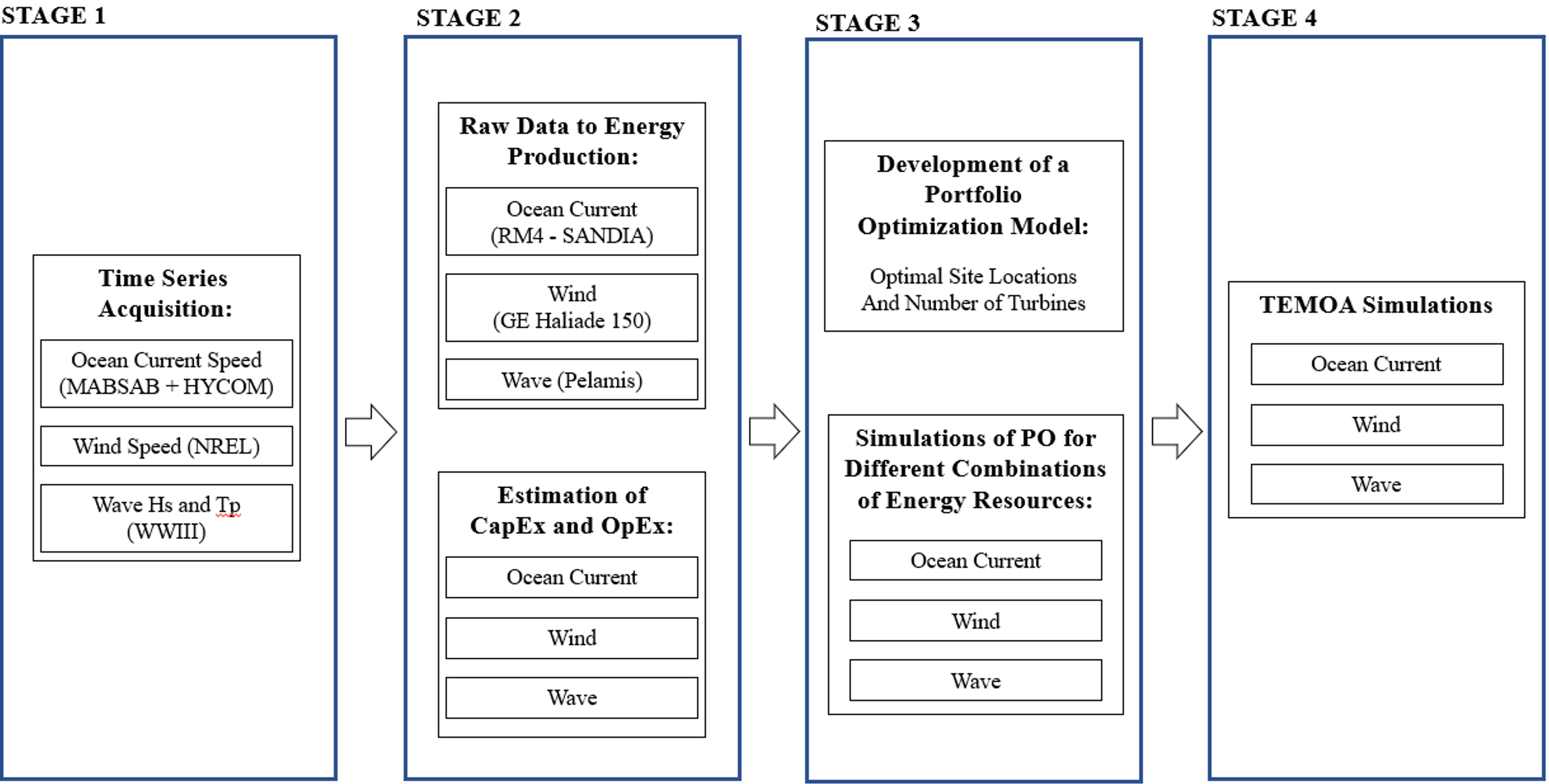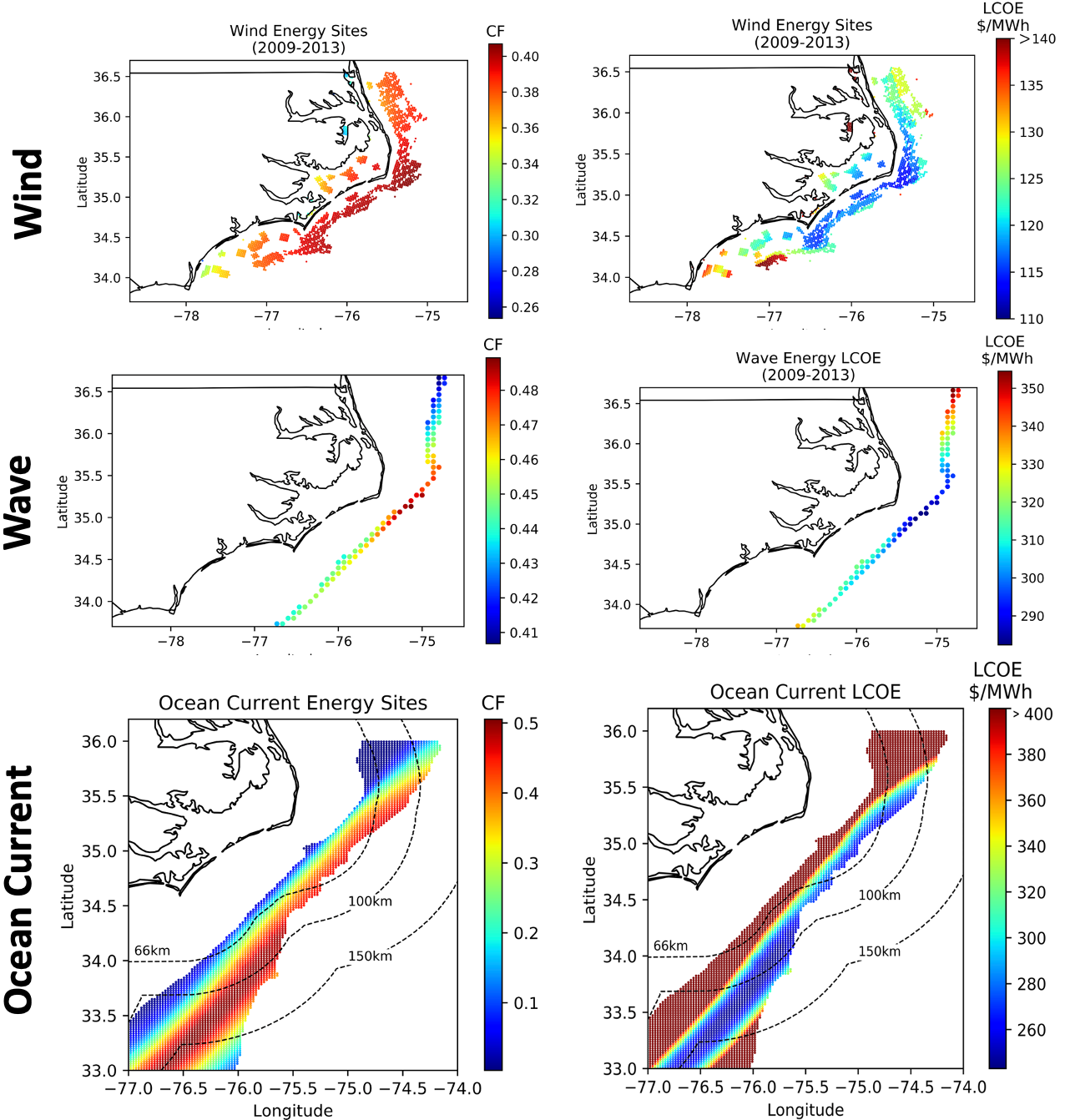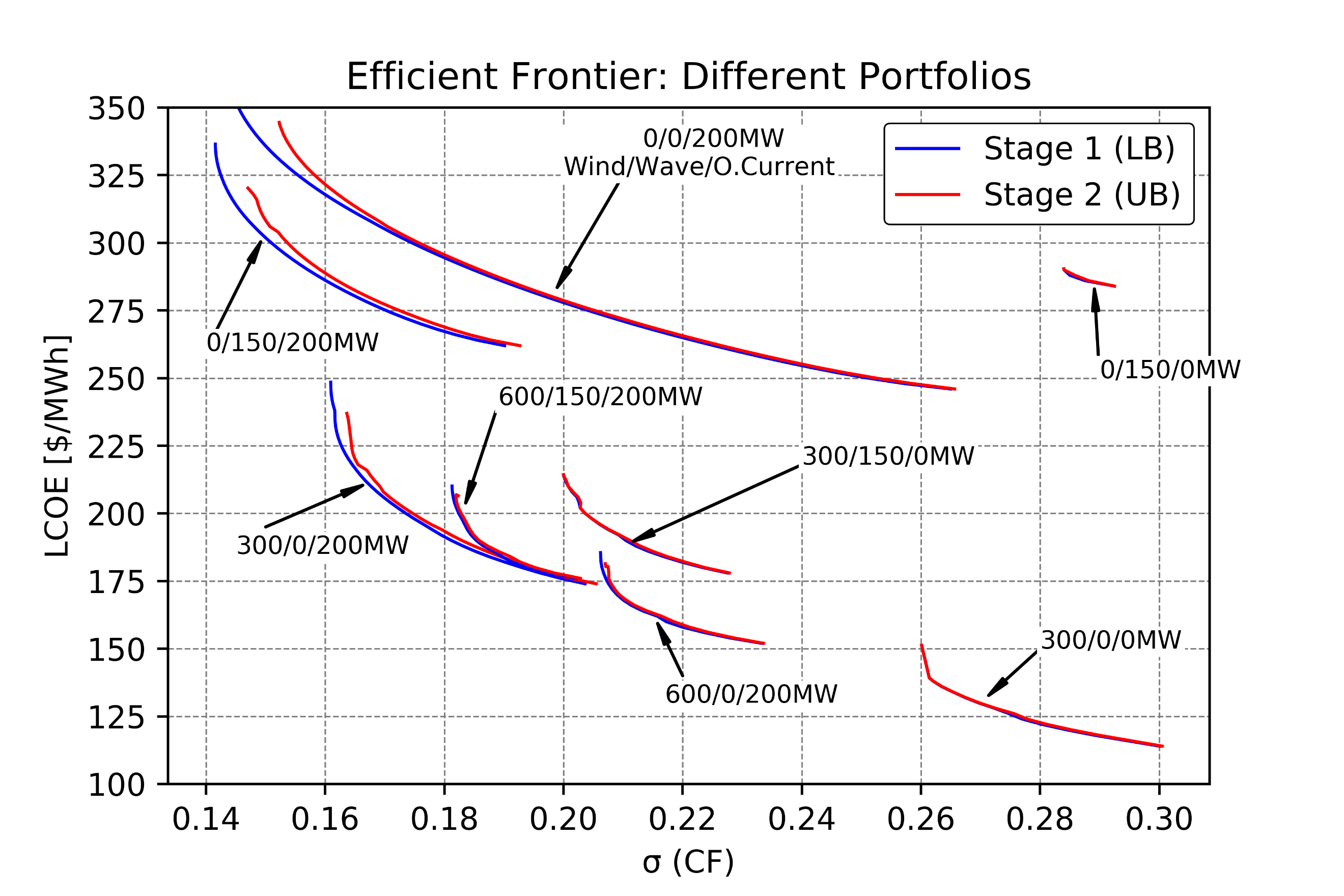Optimizing Investments in Offshore Renewable Energy in the North Carolina Electric Sector
Published in NC Renewable Ocean Energy Program (NCROEP), 2019-2020 , 2019
A key challenge with new energy sources is dealing with its temporal variability. New investments focused on solar and onshore wind deployment, could require significant investments in flexible storage and other generation technologies to create a diverse portfolio in order to match variations in both electricity supply and demand. Offshore energy resources (e.g. ocean current, offshore wind and wave energy) could eventually play a significant role in select states such as North Carolina. Increasing and diversifying North Carolina’s energy portfolio to include offshore energy resources requires detailed economic analysis that considers costs and benefits from a systems-level perspective. The economic benefit of offshore energy depends on its temporal generation characteristics. An important characteristic of any generating unit is its ability to contribute to meeting peak demand. Different energy technologies contribute in a distinct way to satisfy peak demand and have intrinsic characteristics that affect the overall dispatch of the system. For example, solar is available during the day and has a pronounced sub-hourly variability, while wave energy is a more predictable resource with a higher energy density compared to solar and wind. However, the cost-effectiveness of these different forms of electricity generation technologies varies considerably. Therefore, integrated system modeling that considers a broad and diverse set of possibilities is required to explore future scenarios of the state’s electric power system and drive conversations about the importance of offshore technologies.
DeCarolis, J.F. (PI), de Queiroz, A.R. (co-PI), Optimizing Investments in Offshore Renewable Energy in the North Carolina Electric Sector, Funded by the UNC Coastal Studies Institute, Renewable Ocean Energy for North Carolina Program, 2019-2020

Analysis Framework - Optimizing Investments in Offshore Energy in the North Carolina Electric Sector

Capacity Factor and LCOE Results - Optimizing Investments in Offshore Energy in the North Carolina Electric Sector

Efficient Frontier for Different Portfolio Sizes - Optimizing Investments in Offshore Energy in the North Carolina Electric Sector
